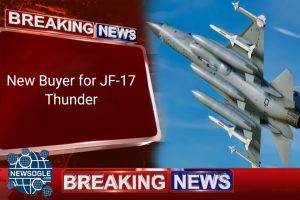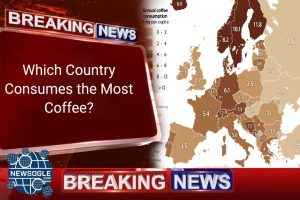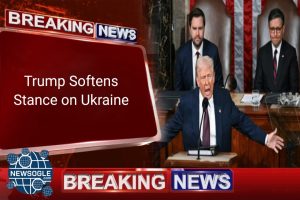Sri Lanka’s political landscape is witnessing a seismic shift, as Anura Kumara Dissanayake, a veteran leftist leader, has emerged as the newly elected President of the island nation. Dissanayake, leader of the Janatha Vimukthi Peramuna (JVP), or People’s Liberation Front, is a figure whose political journey has taken him from the revolutionary fringes of armed struggle to the highest office in the land through the democratic process. His ascent to power marks a dramatic turn in Sri Lankan politics, with profound implications for the country’s future direction.
Table of Contents
The election of Dissanayake, a self-proclaimed socialist and former guerrilla fighter, comes at a critical time for Sri Lanka, which has been reeling from a series of economic crises, political instability, and a loss of confidence in traditional parties. The country’s recent history of mass protests and disillusionment with mainstream politicians paved the way for Dissanayake, whose promise of radical change and a return to the working-class roots resonated with a frustrated electorate.
The Rise of Anura Kumara Dissanayake: A Revolutionary Background
Born in 1968, Anura Kumara Dissanayake’s political roots trace back to the tumultuous period of the 1980s, when Sri Lanka was gripped by civil conflict, economic inequality, and social unrest. The JVP, originally founded in 1965 by Rohana Wijeweera, was a Marxist-Leninist party that engaged in armed insurrections against the government, particularly during the 1971 and 1987-89 uprisings. The JVP sought to overthrow what they saw as a corrupt, capitalist state and replace it with a socialist republic.
Dissanayake joined the JVP in the early 1980s, inspired by its revolutionary ideals and the charismatic leadership of Wijeweera. He quickly rose through the party ranks, becoming one of its most prominent leaders. However, the JVP’s violent insurgency against the Sri Lankan government in the late 1980s ended in a bloody crackdown, with thousands of its members killed or imprisoned. Dissanayake, like many of his comrades, was forced into hiding as the JVP was brutally suppressed.
In the years following the failed insurgency, the JVP transformed itself into a mainstream political party, abandoning armed struggle in favor of parliamentary politics. Dissanayake played a key role in this transformation, helping to rebrand the JVP as a democratic socialist party focused on workers’ rights, anti-corruption measures, and social justice. Over the next two decades, the JVP steadily rebuilt its base, particularly among rural and working-class voters who felt left behind by Sri Lanka’s economic liberalization.
From Opposition to President-Elect
Dissanayake’s political career within the JVP began to flourish in the late 1990s and early 2000s, as the party gained parliamentary representation and positioned itself as a vocal critic of the traditional political elite. While the JVP had a significant influence in Sri Lankan politics during this period, particularly as a coalition partner in several governments, it struggled to break through as a dominant political force on its own.
That changed in recent years, as Sri Lanka faced unprecedented economic and political crises. The country’s worst financial meltdown in decades, triggered by a foreign debt crisis, currency devaluation, and inflation, led to widespread protests in 2022. The government, led by Gotabaya Rajapaksa, faced accusations of mismanagement and corruption, which culminated in Rajapaksa’s resignation and the collapse of his administration.
Amid this turmoil, Dissanayake and the JVP found renewed relevance. His message of fighting corruption, tackling economic inequality, and advocating for the working class resonated with many Sri Lankans who had lost faith in the traditional political parties. While Dissanayake was a consistent critic of the Rajapaksa family’s rule, he also distanced himself from the mainstream opposition, offering a more radical, anti-establishment alternative.
In the 2024 presidential election, Dissanayake’s platform of sweeping economic reforms, anti-corruption measures, and social justice initiatives struck a chord with voters. He promised to overturn the neoliberal economic policies that had, in his view, deepened inequality and left the working class to suffer the brunt of the economic crisis. His campaign was built on the principles of state intervention in key industries, wealth redistribution, and comprehensive welfare programs to alleviate poverty and unemployment.
Despite facing formidable competition from traditional political heavyweights, Dissanayake’s grassroots support and the JVP’s organizational strength propelled him to an unexpected victory. His election represents a profound rejection of the political status quo and the entrenched dynastic politics that have dominated Sri Lanka for decades.
Challenges Ahead: Governing a Fractured Nation
While Dissanayake’s victory marks a historic moment in Sri Lankan politics, his presidency comes with significant challenges. The country is still in the grips of a severe economic crisis, with high inflation, a devalued currency, and crippling foreign debt. His government will need to navigate complex negotiations with international financial institutions like the IMF, while also managing the expectations of a populace eager for immediate relief from economic hardship.
Dissanayake’s platform calls for a departure from the neoliberal policies that have dominated Sri Lankan governance for decades. However, his vision of a state-led economic recovery, focusing on self-sufficiency and wealth redistribution, may face resistance both domestically and internationally. Balancing the need for foreign investment with his socialist agenda will be a delicate task for the new president.
Additionally, Dissanayake’s ability to govern effectively will depend on his relationship with the Sri Lankan military and bureaucracy, institutions that have historically played a significant role in the country’s politics. The JVP’s violent past and its former insurgent activities have left a complicated legacy, and it remains to be seen whether Dissanayake can forge a working relationship with these powerful actors.
Furthermore, Sri Lanka’s ethnic and religious divisions continue to be a source of tension. The country’s Sinhalese-Buddhist majority has often been at odds with its Tamil and Muslim minorities, particularly during the decades-long civil war that ended in 2009. While Dissanayake has spoken about the need for national reconciliation, bridging these divides will require sensitive political leadership and a commitment to inclusivity.
A Leftist Agenda: What to Expect from Dissanayake’s Presidency
Dissanayake’s presidency is expected to bring about significant policy shifts in several key areas, particularly in the economy, governance, and social welfare.
- Economic Reforms: Dissanayake has vowed to overturn the privatization policies of previous governments and bring key industries under state control. His administration is expected to focus on job creation, increasing the minimum wage, and expanding social welfare programs. He has also promised to invest heavily in agriculture and local industries to reduce reliance on imports and promote self-sufficiency.
- Anti-Corruption Campaign: Dissanayake’s campaign placed a strong emphasis on fighting corruption, which has been a persistent issue in Sri Lankan politics. His presidency is likely to see a crackdown on corrupt practices within government institutions, with the establishment of independent oversight bodies and stronger accountability mechanisms.
- Social Justice and Equality: Dissanayake has long been a champion of workers’ rights, and his government is expected to focus on improving labor conditions, particularly for informal and rural workers. His administration will likely prioritize wealth redistribution through progressive taxation and targeted social programs aimed at alleviating poverty and reducing income inequality.
- Foreign Policy: On the international stage, Dissanayake’s presidency may signal a shift away from the West and toward closer ties with socialist and non-aligned countries. While he has not indicated any major departures from Sri Lanka’s traditional foreign policy alliances, his rhetoric has emphasized self-reliance and reduced dependence on international financial institutions.
Conclusion: A New Chapter for Sri Lanka
Anura Kumara Dissanayake’s election as President of Sri Lanka represents a transformative moment in the country’s political history. From his early days as a revolutionary fighter in the JVP to his rise as a democratic leader, Dissanayake’s journey from bullets to ballots has captured the imagination of a nation seeking change.
As he assumes office, Sri Lanka faces daunting challenges on multiple fronts, including economic recovery, social cohesion, and governance reform. Dissanayake’s presidency will undoubtedly reshape the country’s political and economic landscape, but whether his radical vision can deliver the promised transformation remains to be seen. For now, Sri Lanka is embarking on a new chapter, one where a former comrade-turned-president will attempt to steer the nation toward a more just and equitable future.





